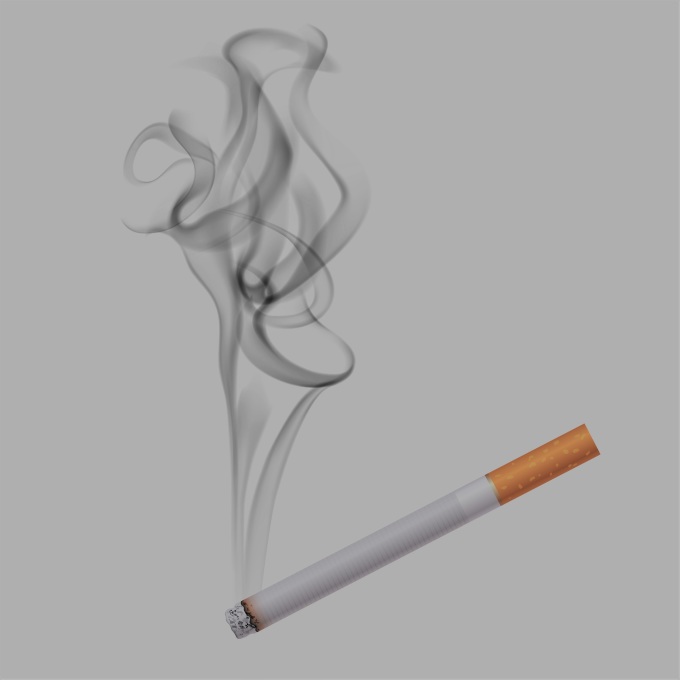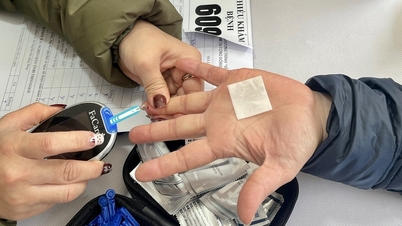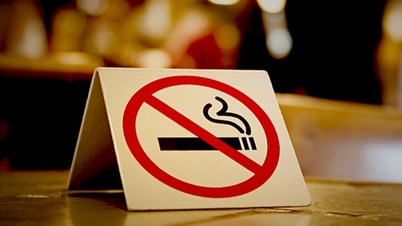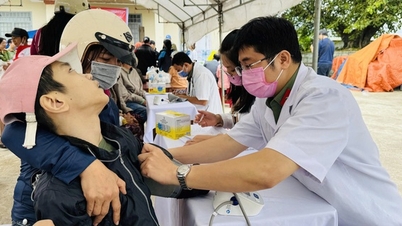Cigarette smoke can linger on surfaces for a long time, and exposure to it can cause cancer, fatty liver, and pulmonary fibrosis.
Cigarette smoke can stick to surfaces, objects and fabrics in the room, on floors, walls, clothes, furniture, toys, curtains, beds and carpets... Even when you stop smoking, cigarette smoke residue can last for months, even years. A 2014 study by the University of California Riverside, USA, showed that secondhand smoke can stay on surfaces, especially fabrics and furniture for 19 months.
Secondhand smoke enters the body in three ways: swallowing, inhaling, and absorbing. You can swallow nicotine and other chemicals from cigarette smoke if you touch a surface contaminated with tobacco smoke and then put your hand to your mouth. Children can ingest it by putting objects contaminated with tobacco smoke in their mouths.
Cigarette smoke releases pollutants into the air, which people can inhale and stick to fabrics, pillows, curtains, etc. Nicotine and other chemicals left over from smoking can be absorbed through the skin. Children have thinner skin and are therefore at higher risk than adults.
Secondhand smoke contains nicotine and chemicals such as arsenic, benzene, butane, cyanide, formaldehyde... which increase the risk of cancer and other diseases.
Cancer : According to a 2014 review by the University of York, UK, based on 80 studies, secondhand smoke can react with common indoor and airborne pollutants to form new and more disease-causing toxins. For example, nitrogen oxides (produced from fuel combustion and wastewater emissions) when mixed with chemicals in secondhand smoke create nitrosamines that cause cancer of the lungs, liver, mouth, stomach and esophagus.

Cigarette smoke contains chemicals that are harmful to health. Photo: Freepik
Coronary thrombosis : Regular exposure to secondhand smoke can increase the risk of blood clots. A 2015 study by Western University of Health Sciences in the US showed that smoking and secondhand smoke exposure increase the risk of acute coronary thrombosis, which blocks blood flow to the heart and causes a heart attack.
Fatty liver disease : Inhaling cigarette smoke stimulates fat accumulation in liver cells, increasing the risk of fatty liver disease. Over time, the disease can develop into cirrhosis and liver cancer.
Hyperactivity : According to a 2014 study by the University of California, USA, on 50 children, passive smoking is associated with hyperactivity in children. This may be because nicotine in cigarette smoke acts as a central nervous system stimulant.
Slow wound healing : A 2016 study by the University of California, USA, showed that exposure to secondhand smoke toxins on surfaces delays and reduces the ability of wounds to heal because they disrupt normal wound healing processes. Cigarette smoke chemicals cause wounds to lose collagen, alter the inflammatory response, and reduce angiogenesis, leading to slow healing.
Insulin resistance : According to Lawrence Berkeley National Laboratory, USA, passive smoking causes oxidative damage and reduces insulin receptors on pancreatic cells, increasing the risk of insulin resistance, leading to type 2 diabetes.
Pulmonary fibrosis : Inhaling or swallowing secondhand smoke affects the production of collagen in the smaller airways (bronchioles) and air sacs (alveoli) of the lungs, leading to pulmonary fibrosis (thickening and scarring of the lung tissue). This can contribute to breathing problems in people with asthma, chronic obstructive pulmonary disease, and cystic fibrosis. It also affects the normal development of children's lungs.
To avoid the above risks, avoid smoking in the house or car, increase awareness of the dangers of this product. If there is a smoker in the house, regularly clean the walls, furniture, children's toys, fabrics... with detergent and hot water.
Mai Cat (According to Very Well Health )
| Readers ask questions about cancer here for doctors to answer |
Source link











































































































Comment (0)